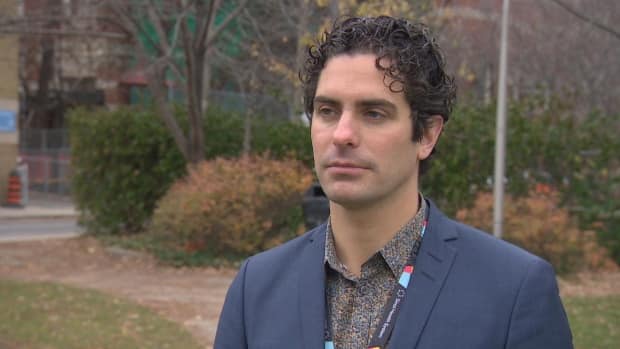How Ontario's second wave of COVID-19 is hitting long-term care
Despite promises of an "iron ring" around Ontario's long-term care homes, the second wave of COVID-19 has brought hundreds of cases and deaths among their elderly residents.
More than 100 homes are currently battling an outbreak of the novel coronavirus among either staff or residents, according to the latest figures published by the Ministry of Health.
So far in November, the deaths of 259 long-term care residents with confirmed cases of COVID-19 have been reported by the province.
With an additional 598 active confirmed cases among residents, and experience showing as many as one in three people over age 80 who contract the virus succumb, there's fear that hundreds more will die before a vaccine campaign rolls out in Ontario's long-term care homes.
"Families are scared and they're angry," said Vivian Stamatopoulos, an associate professor at Ontario Tech University and advocate for long-term care residents.

"The scale of the outbreaks, these exploding outbreaks that we're seeing is really evidence that we wasted the summer months not properly safeguarding the sector," Stamatopoulos said in an interview with CBC News.
One of her greatest concerns is that some homes continue to house seniors three or four to a room.
"Right now those poor residents are effectively sitting ducks, because the second one of those individuals in that ward room gets COVID, it's a slippery slope at that point," Stamatopoulos said.
After the carnage of the springtime, deaths in long term care slowed dramatically, once the spread of the virus slowed around the province.
Over a stretch of nearly eight weeks (from July 22 to Sept 13) Ontario's long-term care facilities reported just four deaths of residents that tested positive for COVID-19.
But as the number of infections among the general public grew in the second wave, long-term care staff and residents got infected too. And inevitably, deaths among residents followed,
"The greatest predictor of whether a home is going to experience an outbreak is community transmission," said Dr. Nathan Stall, a geriatrician at Mount Sinai Hospital in Toronto. "Where you have more community transmission, you have a worse number of outbreaks."
Premier Doug Ford has faced questions about why long-term care residents are getting infected with COVID-19 during the second wave, long after he promised to protect them with what he called an "iron ring" back in the spring. Health Minister Christine Elliott made a similar pledge earlier this month as the deaths mounted.
In separate interviews, both Stall and Stamatopoulos brought up Ford's iron ring comment, without prompting.
When the virus is spreading widely in the community, "it's predictable you're going to have outbreaks (in long-term care) in spite of trying to create an iron ring," said Stall. "Really what you're left with is more like an iron sieve."

"People assume that you can place this iron ring around homes, that it's completely sealed environments, and that's just not how it exists," said Stamatopoulos. "Staff live in the communities. So if there's rising transmission — and we know a lot of the staff live in communities with the highest rates of transmission — of course it's going to get in."
Once the virus is brought into a home, Stall says it spreads most quickly in older, less spacious homes where residents are living in multi-occupancy rooms. He's urging the province to help more crowded homes expand and make it easier for infected residents to isolate, such as building temporary "field hospital" structures or taking over hotels.
At the same time, he is concerned about the impact of certain restrictions put on the lives of residents that he says are not actually protecting them from the virus.
"I'm not aware of any evidence that allowing a long term care resident outdoors to get fresh air or for a small walk around the premises has led to transmission of COVID-19," said Stall.
The province announced Saturday that the management of two more long-term care homes battling outbreaks — Rockcliffe Care Community in Toronto and Langstaff Square in Richmond Hill — is being temporarily handed to local hospitals.
At the peak of its outbreak earlier this month, Rockcliffe reported more than 130 of its 165 residents had tested positive for COVID-19. The latest provincial figures show 17 Rockcliffe residents with the virus have died.


